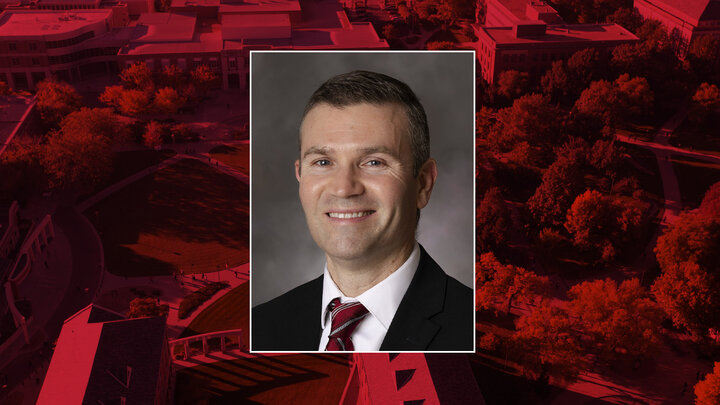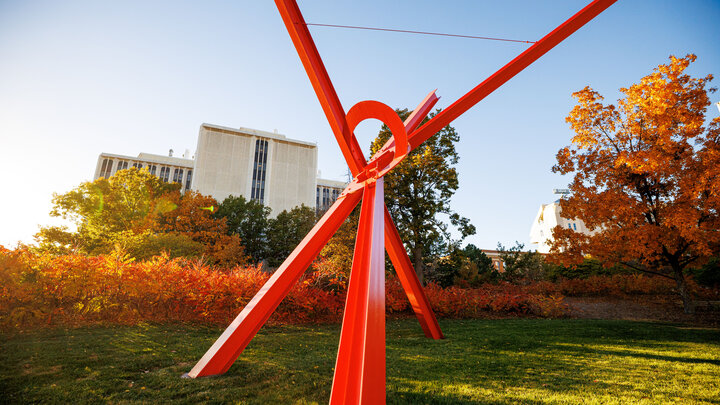Eve Brank, Aaron Douglas Professor of psychology, was interviewed for a Sept. 6 BBC News article on Colin Gray, the father of the Apalachee High School shooter, facing murder charges in the incident. She said she thinks the emerging concept of punishing parents after school shootings reflects broader frustration around U.S. gun violence and, in the absence of regulatory reform, the inability to curb the country’s firearms incidents.
Brank was also featured in a Sept. 11 Reuters article titled “Why charging the parents of school shooters could be a slippery slope.” She said it’s a tactic that could, at least in theory, extend to non-firearm cases. “A car in the hands of someone under the influence” could also be deadly, she said. “Continuing this trend could mean more opportunities to charge parents with a variety of offenses when their children commit crimes.”
Mario Scalora, director of the University of Nebraska Public Policy Center, was interviewed for a Sept. 6 Christian Science Monitor article on school districts’ efforts to prevent school shootings. “The key with threat assessment is you tie it in with physical security, partnerships with law enforcement, coordinating not only physical safety, but investigating risks and threats and how you look at response,” he said. “We do this because we all have people we care about in those buildings.” Scalora was also interviewed for recent KETV and Lincoln Journal Star stories on school safety.
Kevin Smith, political science, was interviewed for a Sept. 8 article in The Hill on the U.S. Senate race between incumbent Sen. Deb Fischer, a Republican, and Dan Osborn, an independent. “At some point, those of us who observe Nebraska politics are going to have to take seriously that this actually is a tight race,” Smith said.
Smith was also interviewed for a Sept. 20 Newsweek article on Nebraska’s swing 2nd District and Republican efforts to change the state to winner-take-all. Smith said he didn’t believe it was likely state lawmakers would secure enough votes to change the system before the November general election. “Getting this done in that short of a time period means negotiating some pretty tough obstacles in the legislature,” he said.
Smith was quoted in a similar article in The Hill on Sept. 23. “There is a mathematical universe in the upcoming 2024 presidential election where one electoral vote could be meaningful,” he said.
Bedross Der Matossian, history, wrote a Sept. 15 guest column for The Christian Post on Armenia’s long history in the Holy Land. The column also appeared in The Times of Israel.
Casey Kelly, communications studies, was quoted in a Sept. 23 PolitiFact fact check debunking a recent claim by former President Donald Trump that every Haitian student in Springfield, Ohio, has a private interpreter. “It might not be an explicit reference to far-right, anti-Semitic replacement theories, but it is definitely a hostile way of framing immigration — legal immigration at that — as an attempt to push out, ignore and replace natural-born white Americans with foreign people of color,” Kelly said.
Mario Scalora, director of the University of Nebraska Public Policy Center, was the featured guest on the Sept. 23 episode of RFD-TV’s “Rural Health Matters,” hosted by Dr. Jeffrey P. Gold, president of the University of Nebraska system. Scalora discussed his work with federal, state and local agencies on threat management and counterterrorism issues.
Research by Matthew Van Den Broeke, Earth and atmospheric sciences, was highlighted in a Sept. 27 Vox article on weather radar showing a mass in the eye of Hurricane Helene that was likely birds and perhaps also insects. In a 2021 study, Van Den Broeke analyzed radar from 33 Atlantic hurricanes that hit the U.S. mainland or Puerto Rico between 2011 and 2020. Each showed signs of birds and insects inside the eye of the storm.




